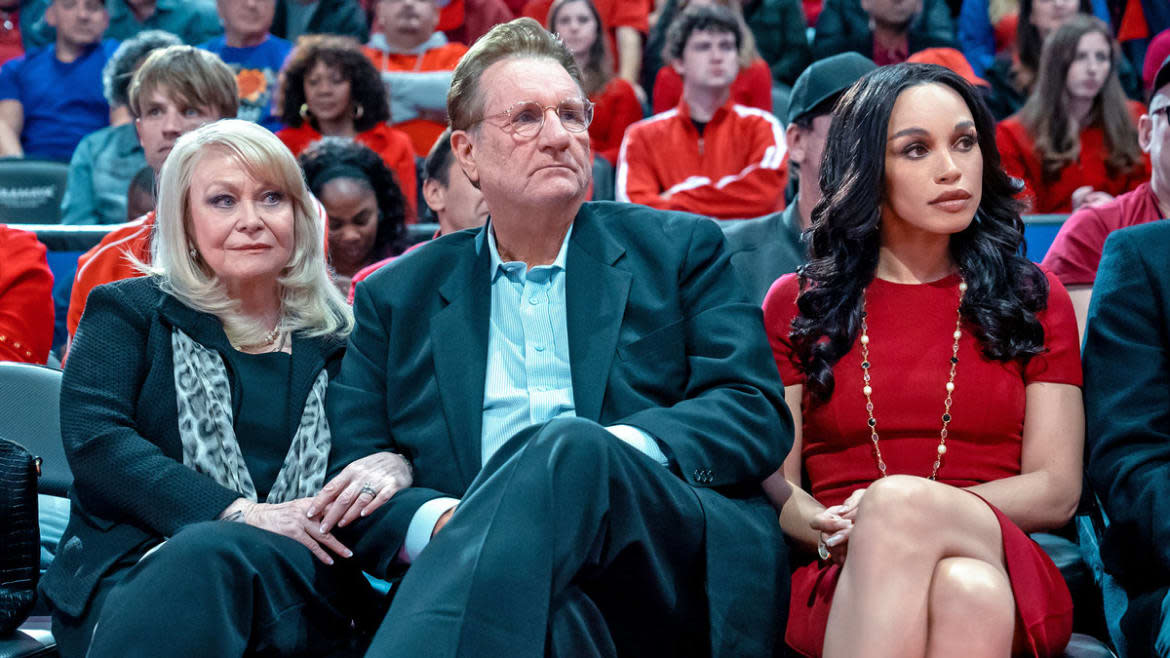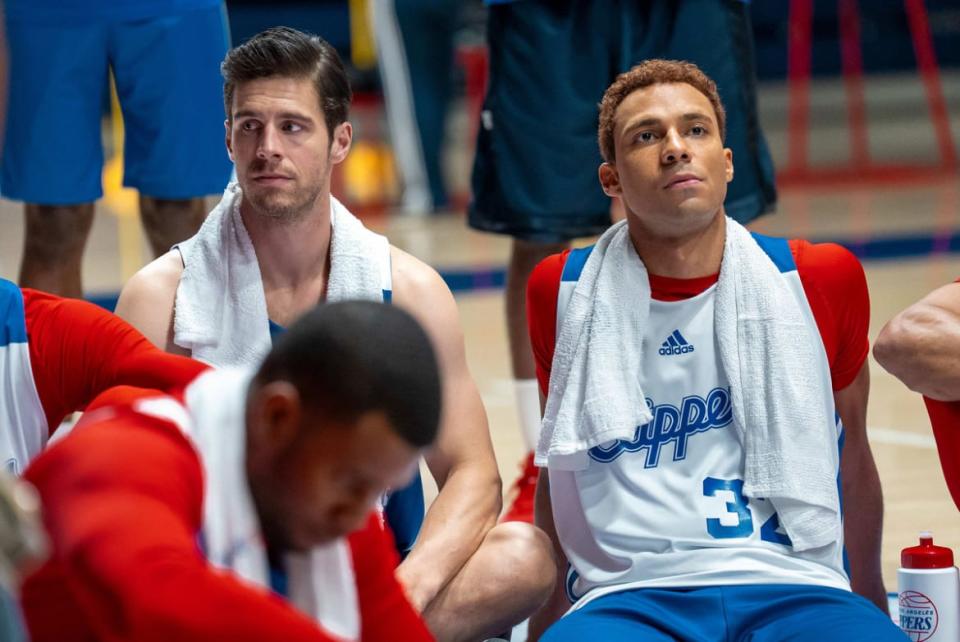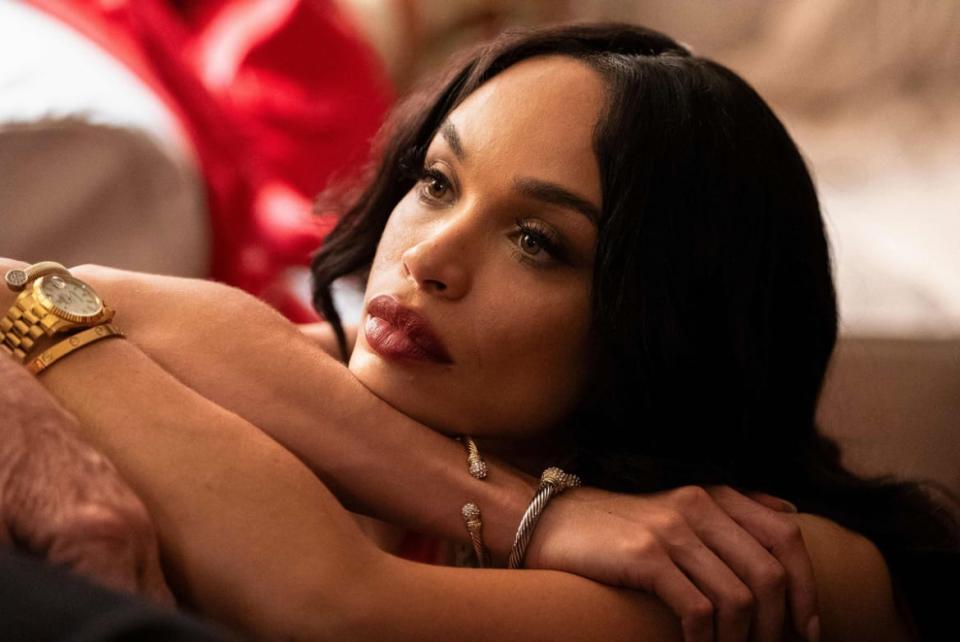‘Clipped’: Donald Sterling’s Racist Comments Get the Prestige TV Treatment

Basketball is a beautiful, fast-paced game, but maybe it moves too quickly to effectively capture up close. That would help to explain why so many notable movies and shows about the sport focus on backstage wheelings and dealings, the big business of ball-playing on display in movies as varied as He Got Game, High Flying Bird, Blue Chips, Hustle, and Air. These types of stories exist about football or baseball, too, but they’re balanced out by countless narratives that depend on substantial gameplay (and gameplay-adjacent stuff, like inspirational locker-room speeches). Basketball, on the other hand, feels at once purer and impossible to depict without chronicling all the forces working to dilute that purity.
This fascination with sports-office politics is all over the FX limited series Clipped. Despite a real-life NBA coach and multiple members of the Los Angeles Clippers serving as major characters, the occasional footage of basketball players on the court tends to feel out of place. For so many people involved in the team, it's almost beside the point.
Based on an ESPN 30 for 30 podcast, Clipped observes a decade-old scandal involving the Clippers’ owner from several angles. Doc Rivers (Laurence Fishburne) starts a new job coaching the supposedly cursed franchise, returning to a team he once played in as a pro. His new position involves working around the Clippers’ intractable blowhard owner Donald Sterling (Ed O’Neill), who enjoys owning the team a great deal more than the team actually winning games. That initial headache becomes a migraine when V. Stivano (Cleopatra Coleman), an assistant at Sterling’s foundation who also serves as a kind of platonic mistress to her boss, exposes a recording of him making racist remarks.
The show doesn’t absolve Sterling or even paint him as momentarily sympathetic—if anything, O’Neill portrays him as a man who will almost always choose the sound of his own voice over anything else, even the reputation that he initially believes can’t be sullied—but it does explore the more complex motivations of the women in his life, going beyond a desire to expose his incompetence.

Charlie McElveen and Austin Scott
Stivano is a biracial woman, disgusted by Sterling’s prejudice and hoping to adopt two boys she’s been fostering; she’s also an aspiring Kardashian who, as we see in an obligatory flashback episode, has realized that flattering rich men offers a shortcut to the world of wealth she so fervently desires. Sterling’s wife Shelly (Jacki Weaver), meanwhile, is his partner in life and business, seen as a cheerful little socialite but simmering with rage about her husband’s condescension and philandering. (Despite the lack of sex between Sterling and Stivano, the younger woman looks like his mistress, which is almost worse.) Both characters spend a lot of time waffling over whether they want to leave Donald out to dry, stick through it for his wealth, or somehow, impossibly, do both.
‘Eric’: Benedict Cumberbatch Makes for One Lousy Drunk Puppeteer
These dynamics are interesting as far as they go, and Clipped has a potent enough cocktail of gossip and insight to stay entertaining for most of its six episodes (at least for a viewer only casually familiar with Sterling’s scandal). In a clever touch for a saga that hinges on an audio-only recording, all of the leading performances depend on specific vocal shifts: Fishburne adds some gravel to his register, O’Neill uses his blustery condescension as a bulldozer, and Coleman affects a Megan Fox-ish (and stereotypically “white”-sounding) tone. For all of them, self-presentation is key to their professional goals—and the actors make these gestures both telling and engaging.
But as the series goes on, it doesn’t always mix its voices together at optimal levels. Fishburne is easily the most charismatic and empathetic of the leads, and he becomes a de facto supporting character once Sterling’s racism becomes (more) public. There’s a lot of lip service paid to how these stresses affect the Clippers and their first serious run at a championship in ages, but that material never really deepens until Rivers becomes more prominent in the final episode again. In the meantime, the players have at least one locker-room conversation that feels designed to convey a variety of cogent perspectives on racism in the NBA rather than characters’ particular thoughts and reactions. (It’s less ridiculous than the consent chat that sprung up among the soccer blokes of Ted Lasso, but mostly because it’s less cheerful.)

Cleopatra Coleman
These scenes are ample evidence that Clipped wants to capture intersecting national movements: social media becoming a lifeline for the desperate aspirations of wannabe influencers (augmented by frequent and largely unnecessary cutaways to scrolls of mocked-up memes); corporate quasi-accountability papering over unchanged systemic problems; the angry grasping of older white men (and women) in the dawning Trump era; and the other types of less socially acceptable anger that persecuted minorities are forced to redirect.
Showrunner Gina Welch (Under the Banner of Heaven) covers some of this material well, while other moments feel like reaching—the TV-writing equivalent of applying a few hashtags to make quick connections. This makes Clipped look like the latest example of a feature film’s worth of material that is overextended and drawn out into a miniseries. But maybe it’s actually just another instance of basketball moving with too much agility and dexterity to properly capture onscreen.
Get the Daily Beast's biggest scoops and scandals delivered right to your inbox. Sign up now.
Stay informed and gain unlimited access to the Daily Beast's unmatched reporting. Subscribe now.


